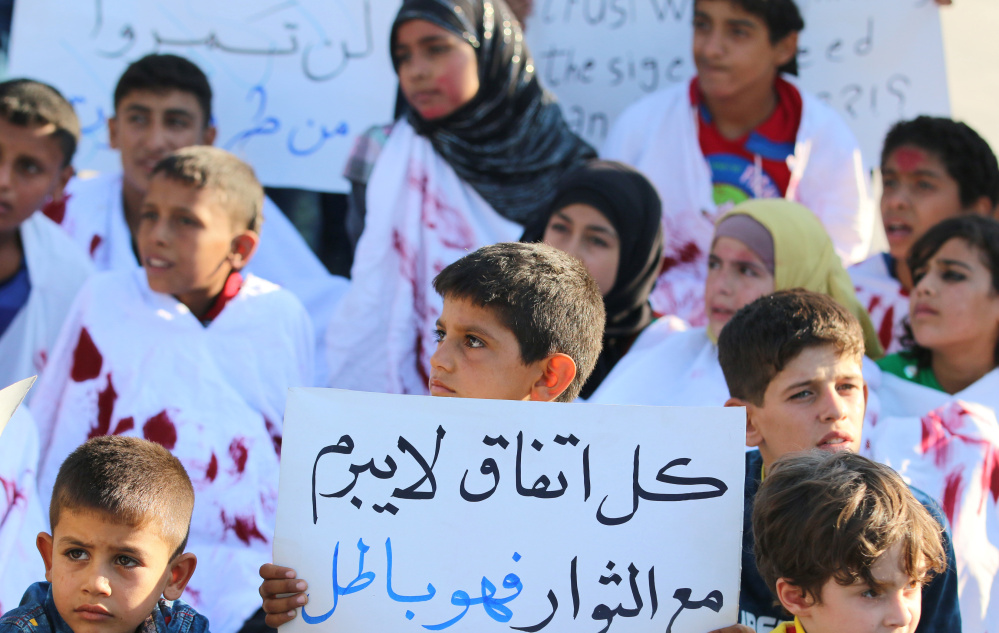ISTANBUL — Efforts to bring aid to Syrians amid a cease-fire remained stalled Wednesday, challenging a key part of a deal brokered by the United States and Russia to curb the violence and ease civilian suffering.
The cease-fire agreement, which took effect Monday, calls for full humanitarian access to besieged areas such as the city of Aleppo. The truce has largely held, but life-saving aid remained stuck at the Turkish-Syrian border, U.N. officials said.
Syria’s government has not yet authorized the passage of the U.N. convoy, the agency said. U.N. officials also were worried about attacks by militants who have rejected the cease-fire.
“You’re talking about not only the Syrian government, but also dozens of armed groups across the country – some of whom may have an agenda of their own,” said David Swanson, a spokesman for the U.N. Office for the Coordination of Humanitarian Affairs.
He called the relief efforts “particularly complex” because of “some parties to the conflict that are not fully on board.”
Another part of the U.S.-Russian effort foresees possible coordinated operations against militant factions if the cease-fire holds for a week. The targets – which are not part of the cease-fire – include a former al-Qaida-inspired group and the Islamic State. A U.S.-led coalition has conducted airstrikes against Islamic State strongholds in Syria for nearly two years.
Russia sent its military to Syria last year to aid President Bashar al-Assad, whose forces have signaled backing for the cease-fire plan. But Moscow claimed Wednesday that its warplanes were on the offensive against the Islamic State even as the truce quieted fighting in other parts of Syria.
A report by the Russian news agency Interfax said the Russian military targeted Islamic State fighters attempting to attack the ancient city of Palmyra, from which the militants were driven out earlier this year.
The report quoted Viktor Poznikhir, a senior Russian army official, as saying Russian airstrikes killed 250 fighters and destroyed antiaircraft batteries and around 15 vehicles.
The Russian account could not be independently verified. But it appeared to send a message to Washington that Russia was ready to shift its focus to the Islamic State and other groups.
Palmyra also carries important symbolic value for Russia. In May, a high-level Russian delegation staged a propaganda-heavy ceremony and concert amid the 2,000-year-old ruins to mark the city’s liberation from Islamic State control.
Send questions/comments to the editors.



Success. Please wait for the page to reload. If the page does not reload within 5 seconds, please refresh the page.
Enter your email and password to access comments.
Hi, to comment on stories you must . This profile is in addition to your subscription and website login.
Already have a commenting profile? .
Invalid username/password.
Please check your email to confirm and complete your registration.
Only subscribers are eligible to post comments. Please subscribe or login first for digital access. Here’s why.
Use the form below to reset your password. When you've submitted your account email, we will send an email with a reset code.